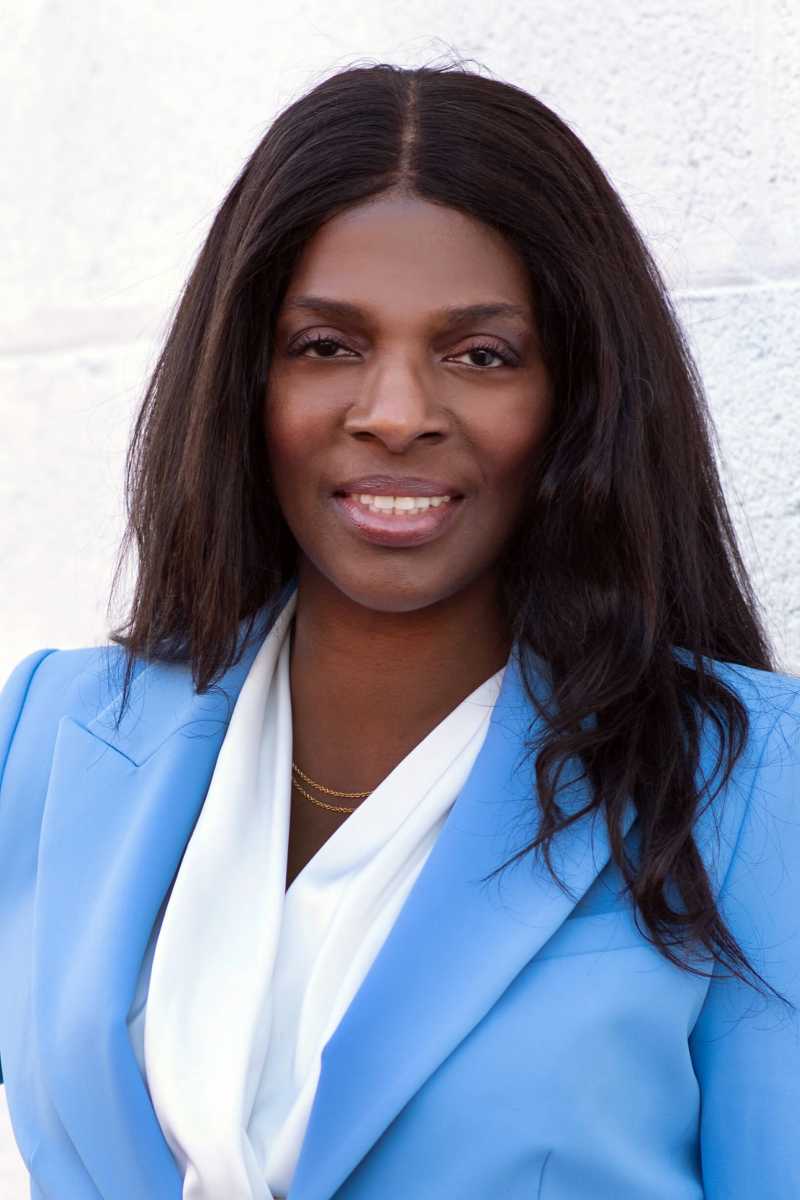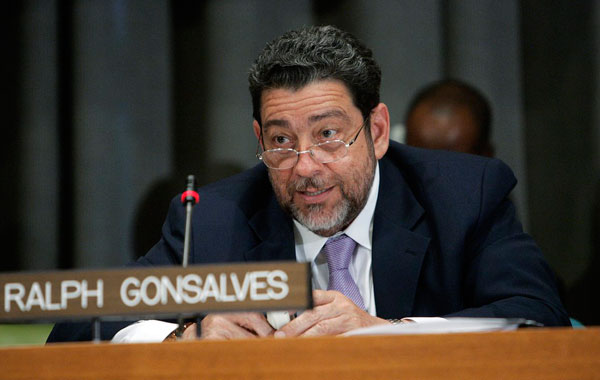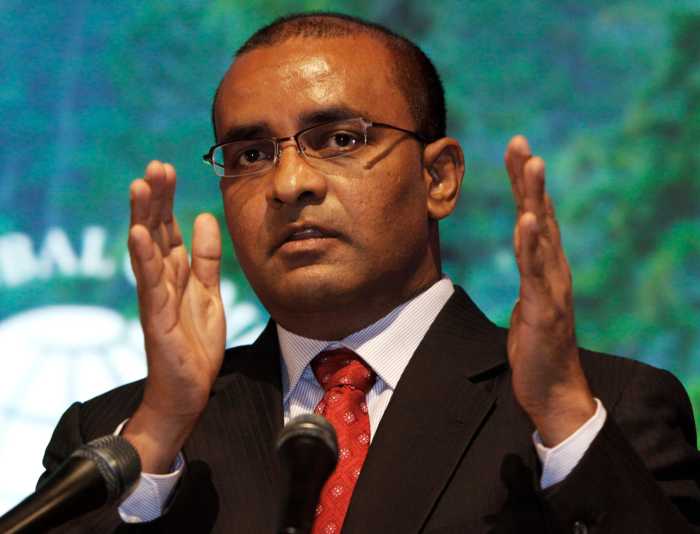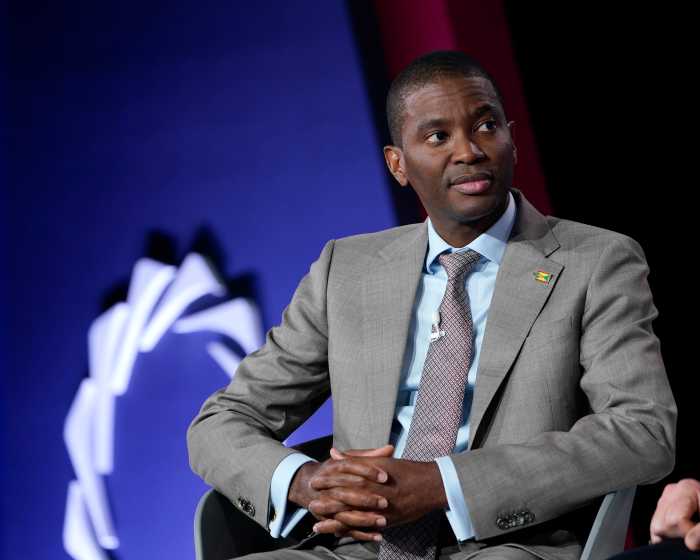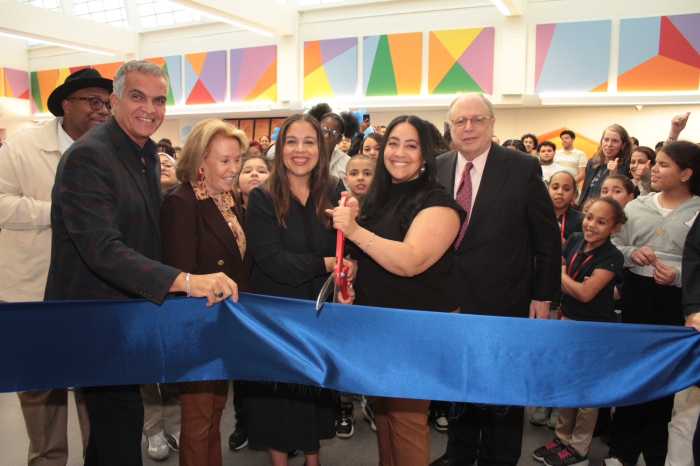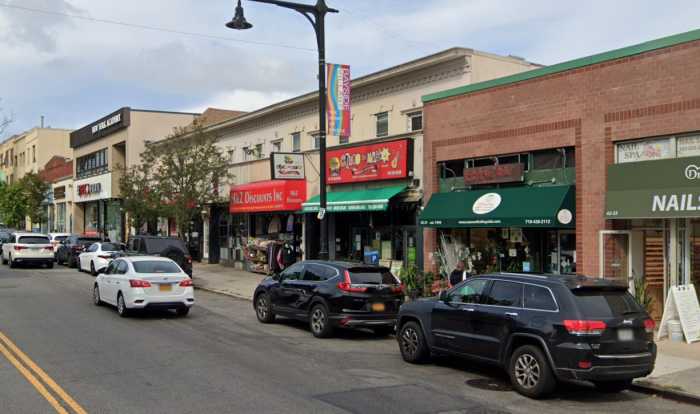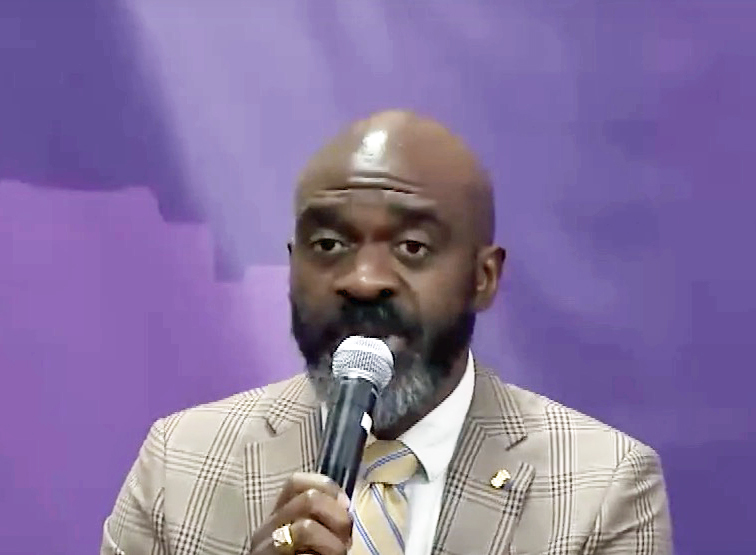Stating that serving as a Supreme Court justice is the highest honor of her career, a Grenadian American jurist in Brooklyn says she is “privileged to serve” and represent her community and its diverse needs, as well as the needs of the entire borough.
“My entire legal career has been dedicated to serving the best interests of the public,” Justice Dena E. Douglas, acting Supreme Court Justice, New York State Supreme Court, Criminal Brooklyn, told Caribbean Life, in an exclusive interview over the weekend.
Justice Douglas — whose family is specifically from Carriacou, the larger of Grenada’s two sister isles (the other is Petite Martinique) — said both her mother’s and father’s side of the family are from Carriacou.
She said she is a first-generation Brooklynite on her father’s side and second generation on her mother’s side.
Justice Douglas said her family migrated to New York in the 1940s and that she was born at Brookdale University Hospital in Brooklyn.
She said her first exposure and inspiration to pursue a legal career was through her father, David Douglas (deceased), an attorney who represented many Caribbean families in Brooklyn in the 1970s, ‘80s and ‘90s.
Justice Douglas first served for 12 years as an assistant district attorney in the Kings County District Attorney’s Office.
During her tenure in that office, she rose to the positions of Deputy Bureau Chief in the Homicide Bureau and Bureau Chief of Trial Zone “I”, where she was responsible for managing attorneys and high-level felony matters.
Subsequently, she was a federal prosecutor in the United States Department of Justice Counterterrorism Section and then a senior advisor to the Attorney General for the District of Columbia.
Currently, Justice Douglas has been a judge for 15 years; the last six have been as an Acting Supreme Court Justice in the Kings County Supreme Court, Criminal Term.
“My decision-making is shaped not only by my professional experiences but also by my personal experiences and values,” she said. “My individual ethics and family values drive me to achieve fair and just outcomes for all.”
With respect to the cases before her, Justice Douglas said she pays “great care in ensuring that defendants are afforded their due process and constitutional protections.
“I believe diversity on the bench assures justice for all,” she said, pointing out that she was born and raised in Crown Heights and Flatbush “in a Caribbean-rich community.
“I have lived, worked and attended school in other parts of the borough, and understand the diverse needs of those who come before me,” she added.
A highly-respected justice serving most of her legal career in Brooklyn, Justice Douglas is a graduate of St. John’s University School of Law in Jamaica, Queens, earning her juris doctorate (law degree) in 1991.
She completed her undergraduate studies in communication studies at Northwestern University, in Evanston, Illinois, graduating in 1987.
Justice Douglas was elected to the Civil Court in November 2006, by an overwhelming majority, to represent all districts in Kings County.
Due to her extensive experience in criminal law, she was assigned to the Criminal Court.
In 2016, Justice Douglas was re-elected to her second term after a highly successful re-election campaign, where she was unopposed.
After her re-election, Chief Judge Janice DiFiore elevated Justice Douglas to serve as an Acting Supreme Court Justice in Kings Supreme Court, Criminal Term, where she is assigned to a Jury Trial Part.
In that capacity, she presides over all aspects of major felony Supreme Court criminal jury trials, including homicides and complex gang crimes.
Before her election, Justice Douglas served as an assistant district attorney in Kings County.
As an assistant district attorney, Douglas presented hundreds of cases to the grand jury, prosecuted dozens of high-profile homicides and major offenses, was the Deputy Bureau Chief of Domestic Violence, and Deputy Bureau Chief of the Homicide Bureau.
She was then recruited by the United States Department of Justice, where she prosecuted complex federal domestic and international terrorism matters.
Douglas then moved on to the Office of the Attorney General for the District of Columbia, where she served as a senior advisor to the attorney general.
Early in her career, Justice Douglas was a regular commentator at Court TV – from the late 1990s to early 2000s – regularly appearing on the Nancy Grace Show.
An avid lover of the law, Justice Douglas taught legal reasoning at Brooklyn College from 2008-2011.
Justice Douglas believes in giving back to her community and inspiring others.
This week, she is serving as the Mistress of Ceremonies in the 2021 Caribbean Heritage Month Celebration in the New York State Courts. She is also a member of the recently-formed, Brooklyn-based Caribbean American Lawyers Association (CALA), headed by Barbadian-born Justice Sylvia Hinds-Radix.
Through her sorority, Alpha Kappa Alpha, Delta Rho Omega Chapter, founded in Brooklyn in 1947, the chapter has undertaken many projects, some of which included monetary and volunteer assistance to the Brooklyn Home for the Aged, support to the Young Women Christian Association (YWCA) and the National Council of Negro Women, and the establishment of a scholarship program.
In addition, Justice Douglas was selected as the first justice to preside over both Projects Safe Surrender and Begin Again, a national model held for the first time in Kings County (Brooklyn).
Under Justice Douglas’ leadership, the groundbreaking programs were held at St. Pauls’ Community Church, and Antioch Baptist Church and Mount Pisgah Baptist Church in the Bedford-Stuyvesant section of Brooklyn.
In her duties at Project Safe Surrender, Justice Douglas said she was committed to resolving minor non-violent offenses, “where the offender would be alleviated from the burden of a record.”
Throughout her career, Justice Douglas has received several community awards. Most notably, she was awarded Judge of the Year by the Grenadian Benevolent Association in 2009.
She also received the George Fox Alumnae of the Year from her alma mater, Brooklyn Friends School (BFS) in Brooklyn Heights, where she served on an executive board committee and the 150th Anniversary Committee. Her BFS committee work was from 2009-2011 and 2015-16.
As part of her commitment to the greater legal community, Justice Douglas serves on the Board of Directors of the Judicial Friends Association, Inc. (JFA), which, she said, is “committed to racial equality in the field of law for racial and language minorities.”
Justice Douglas said JFA, also known as The Judicial Friends, was established in 1976 by a group of judges of color within the State of New York and within the federal districts that encompasses the United States District Courts for the Southern and Eastern Districts of New York seeking “fair and just treatment” of African-American judges, judicial staff and attorneys.
Justice Douglas also serves on the executive board of the Nathan R. Soble Inn of Courts. She is the elected treasurer.
The Inn of Court holds its meetings at the Brooklyn Bar Association in Brooklyn Heights.
In her prior role as chair of the Kings County Criminal Court Gender Fairness Committee, Justice Douglas created an Annual Speaker Series, entitled “An Oral History of Women in the Courts,” featuring a range of women speakers. She served as chair of the Gender Fairness Committee from 2010-2017
Justice Douglas — a widow and mother of two children — said she continues to “look for new and creative ways to effect change, create policy and develop innovative programs in criminal justice.”
“As a judge elected to serve in the New York State Unified Court System, my primary responsibility is to further the mission of the system, to promote the rule of law, and to serve the public by achieving just and timely resolution of all matters before the courts,” she said.
“To the members of the public and to the members of the legal profession who are not members of the bench, each individual judge is a personification of the system and must act accordingly,” she added.
In this regard, Justice Douglas said the individual judge is expected to “exemplify not only the highest level of intellectual probity in her decisions but also to exemplify the American work ethic and pay the highest attention to moral or family values in her personal life.”


